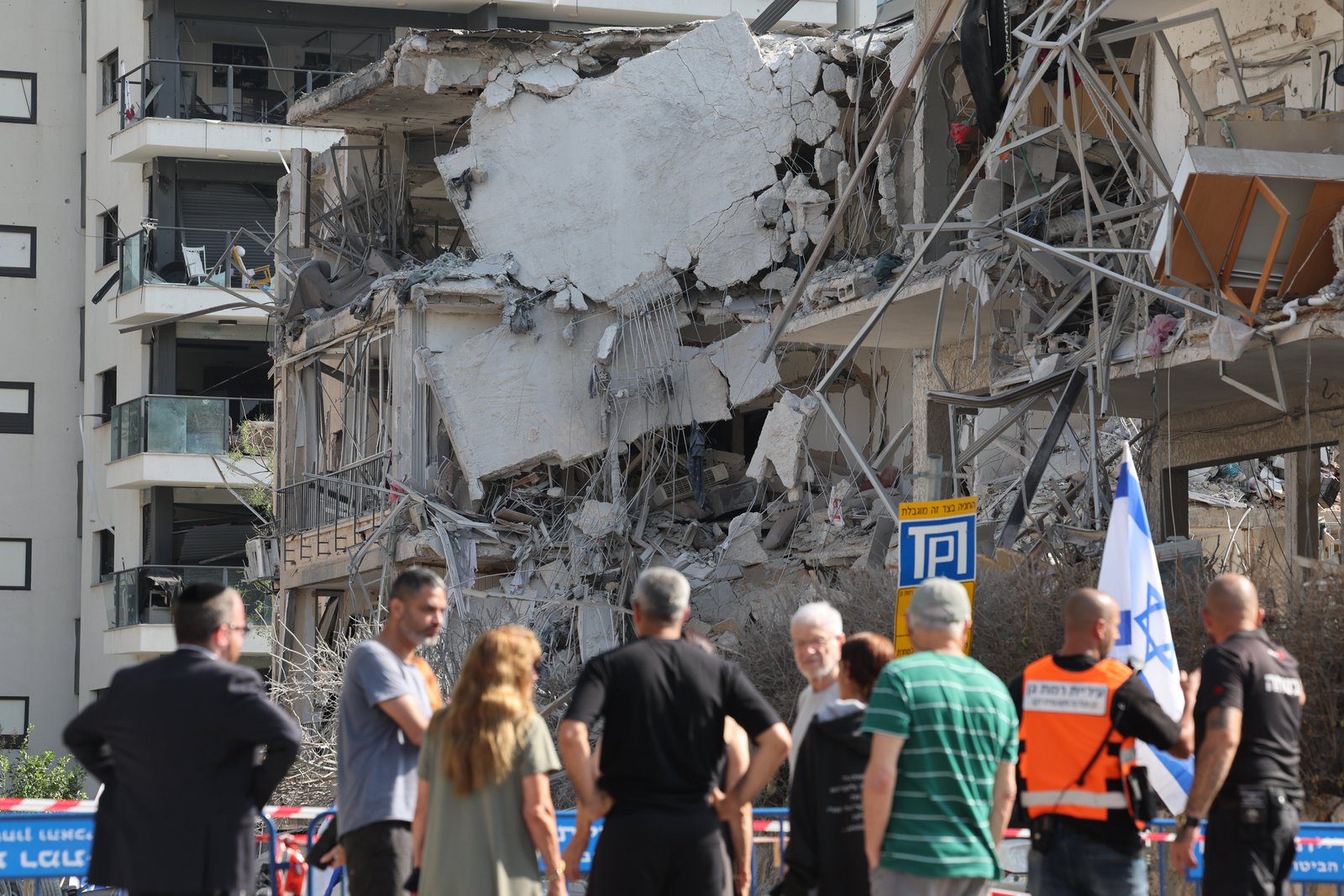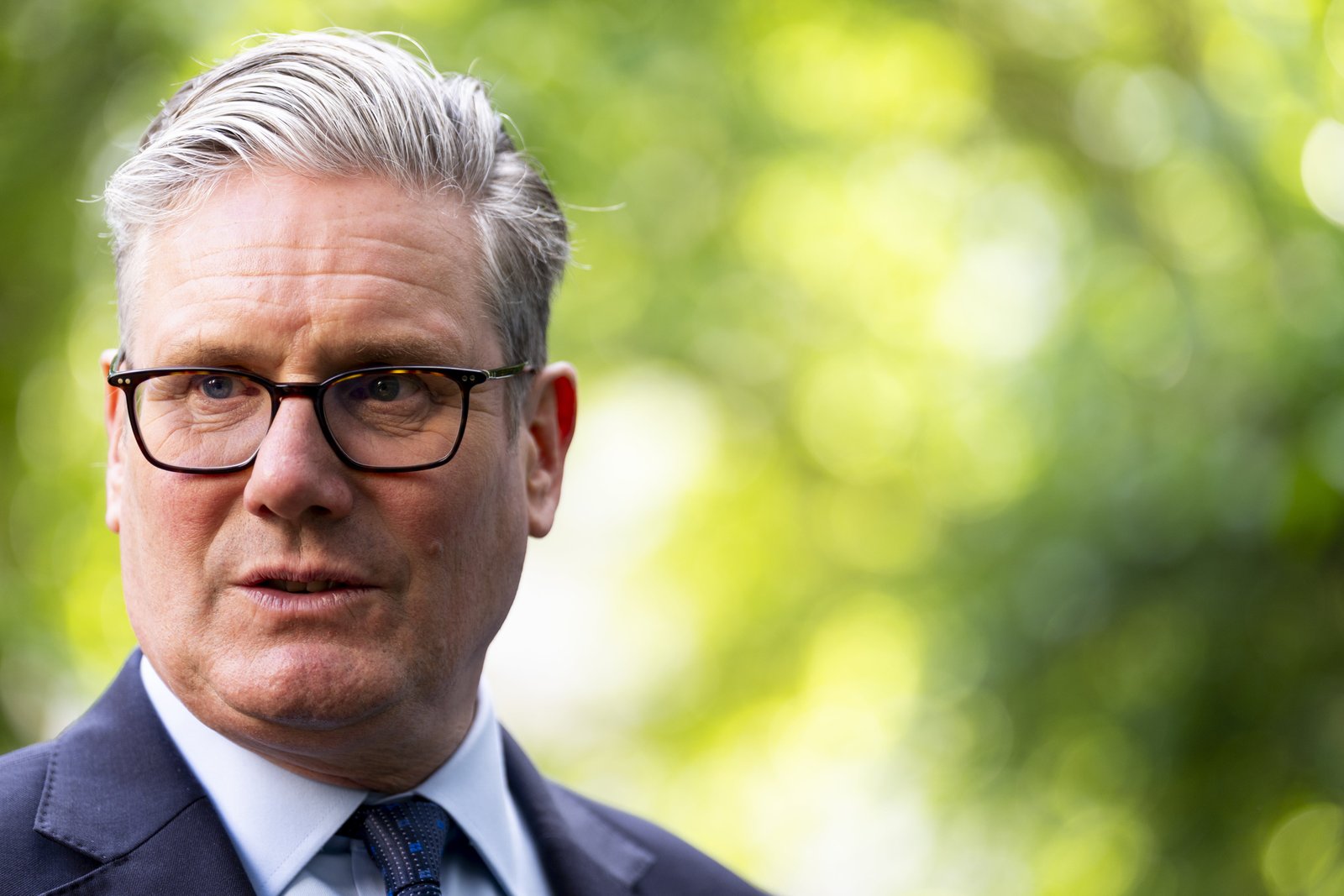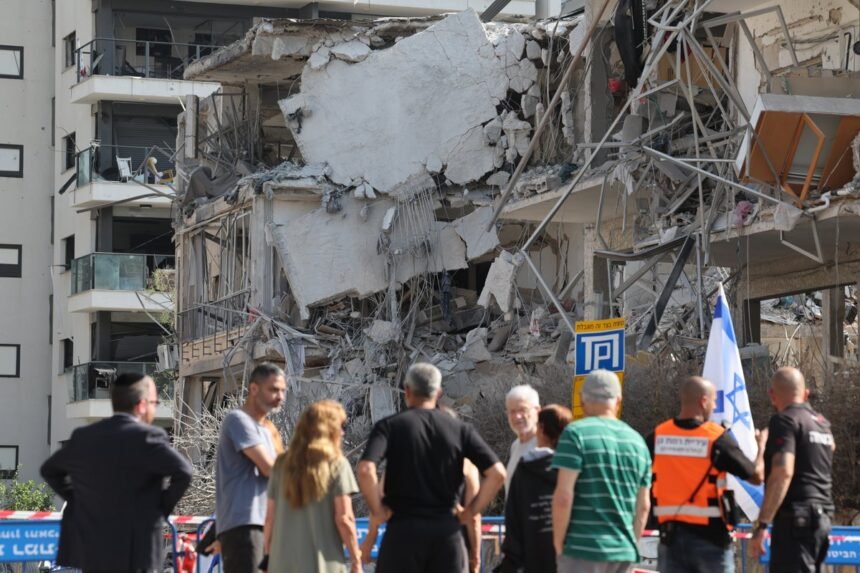The UK is sending more RAF jets to the Middle East, Sir Keir Starmer said, after Iran threatened to target British, French and US bases if the countries help stop strikes on Israel.
The prime minister said further military assets are being deployed to provide “contingency support” across the region amid escalating hostilities between the two long-time foes.
Sir Keir’s announcement comes as Iran and Israel continue to bombard one another with airstrikes in the wake of Israeli attacks on Iran’s nuclear bases.
Civilians took cover in bomb shelters as air raid sirens sounded across Israel, while plumes of smoke were seen rising from the streets of Tel Aviv after deadly attacks in both countries.
Rejecting international calls to de-escalate the violence, Israeli prime minister Benjamin Netanyahu said the attacks would intensify as he claimed to have set back Iran’s nuclear capabilities, possibly by years.
“We will hit every site and every target of the ayatollah’s regime and what they have felt so far is nothing compared with what they will be handed in the coming days,” he vowed in a video message on Saturday.
Ahead of a gathering of world leaders at a crunch G7 summit in Canada, Sir Keir Starmer confirmed Britain was moving military assets to the region.

Speaking to reporters on his flight to Canada, Sir Keir said: “These are obviously operational decisions and the situation is ongoing and developing and therefore I’m not going to get into the precise details, but we are moving assets, we’ve already been moving assets to the region, including jets, and that is for contingency support across the region.
“This is not only fast-moving, it’s intense. We’re having ongoing discussions with our allies all of the time, both myself and [foreign secretary] David Lammy, as you’ve seen, who also spoke to the Iranians, as I think is a matter of record now.
“Our constant message is de-escalate, and therefore everything we’re doing, all discussions we’re having, are to do with de-escalation.”
Iran has warned the UK, US and France that their bases and ships in the region will be targeted if they help stop Tehran’s strikes on Israel.
The threat came after Sir Keir called for peace in a call with Mr Netanyahu on Friday, calling on him to de-escalate and work towards a “diplomatic resolution”, while Mr Lammy spoke to his Iranian counterpart on Saturday to “urge calm”.
The prime minister also spoke with Saudi Arabian Crown Prince Mohammed bin Salman on Saturday, with the pair agreeing on the need for Iran and Israel to de-escalate tensions.

That followed conversations with representatives from Iran, Jordan and Saudi Arabia, as well as European foreign ministers on Friday, with Sir Keir joining French president Emmanuel Macron and German chancellor Friedrich Merz in calling for restraint.
Iran launched missile and drone strikes on Israel overnight on Friday after a series of Israeli attacks on the heart of Tehran’s nuclear programme and armed forces.
Tehran’s UN ambassador said 78 people had been killed and more than 320 wounded in the attacks. Tehran’s retaliatory strikes were said to have killed at least three and wounded dozens.
A Cobra meeting of high-level ministers was convened on Friday afternoon to discuss the situation. The PM then spoke to US president Donald Trump, with the pair agreeing the conflict needed to be resolved by “diplomacy and dialogue”.
Israel said the barrage was necessary before Iran got any closer to building a nuclear weapon, although experts and the US government have assessed that Tehran was not actively working on such a weapon.
Iran hit back with waves of drone and ballistic missile strikes, with explosions lighting up the skies over Jerusalem and Tel Aviv.

Operation Rising Lion – the offensive against Tehran – has mainly targeted nuclear sites, including destroying the above-ground section of Iran’s main Natanz nuclear base.
Hossein Salami, the leader of Iran’s Islamic Revolutionary Guard Corps, was among the senior Iranian figures reportedly killed in Israel’s initial overnight strikes.
The attack is believed to be the most significant Iran has faced since its war with Iraq in the 1980s.
Tensions between Israel, the US and Iran have escalated in recent weeks, amid negotiations over the Iran nuclear deal, which is aimed at preventing the country from developing nuclear weapons.
On Friday, Israel’s Western allies attempted a diplomatic blitz aimed at cooling temperatures in the Middle East.
The US president has also suggested that Iran now has a chance to agree on a nuclear deal to bring an end to the fighting.
On his Truth Social platform, President Trump wrote: “Two months ago, I gave Iran a 60-day ultimatum to “make a deal”. They should have done it!
“Today is day 61. I told them what to do, but they just couldn’t get there. Now they have, perhaps, a second chance!”
Both the UK and the US have insisted they were not involved in the Israeli strikes and that Israel acted unilaterally.
The first time Israel discussed the strikes with the UK was at midday on Friday, according to Tzipi Hotovely, the country’s ambassador to the UK.
UN secretary-general Antonio Guterres called for the attacks to be halted.
“Israeli bombardment of Iranian nuclear sites. Iranian missile strikes in Tel Aviv. Enough escalation. Time to stop. Peace and diplomacy must prevail,” he said in a post on X (Twitter).







